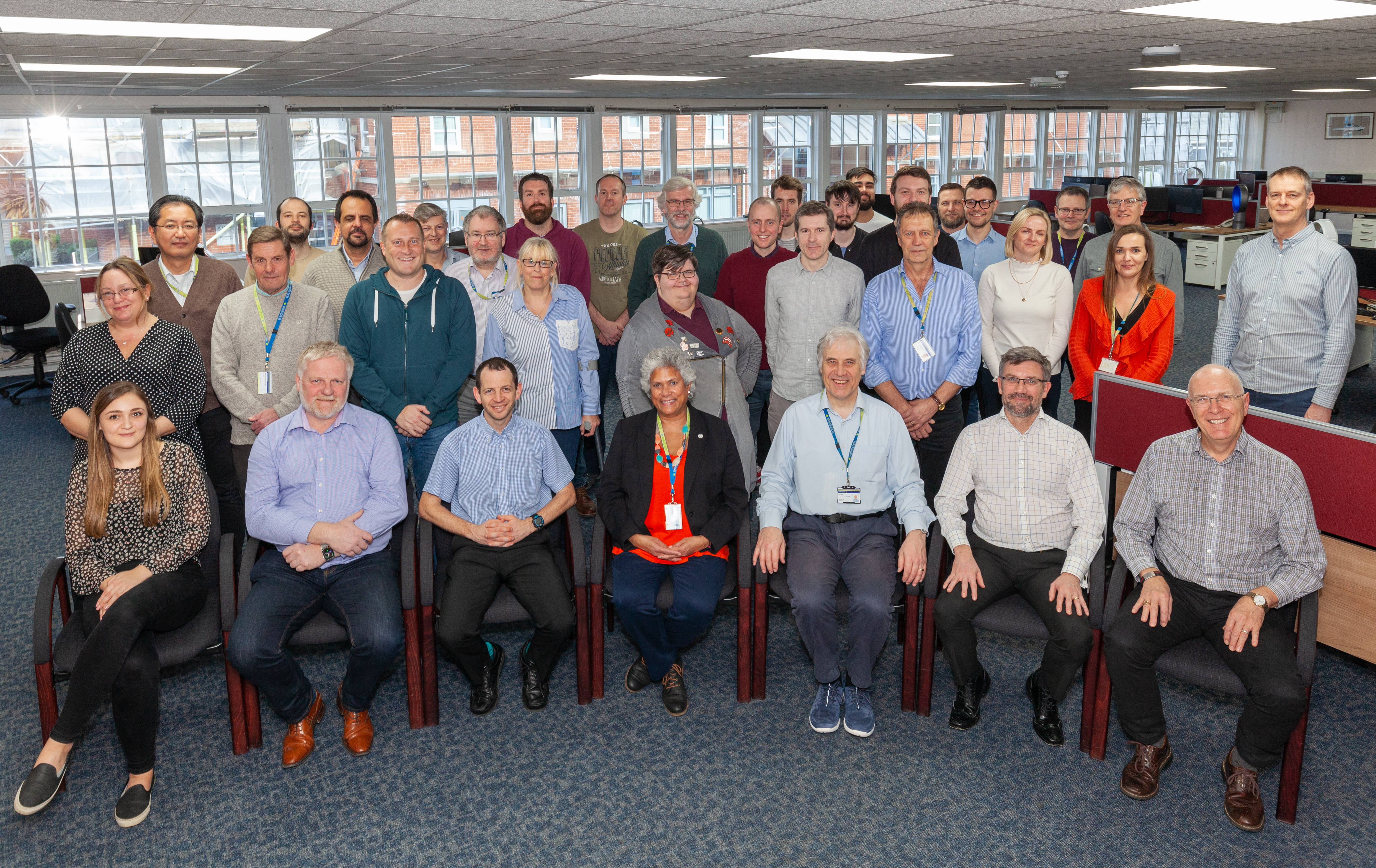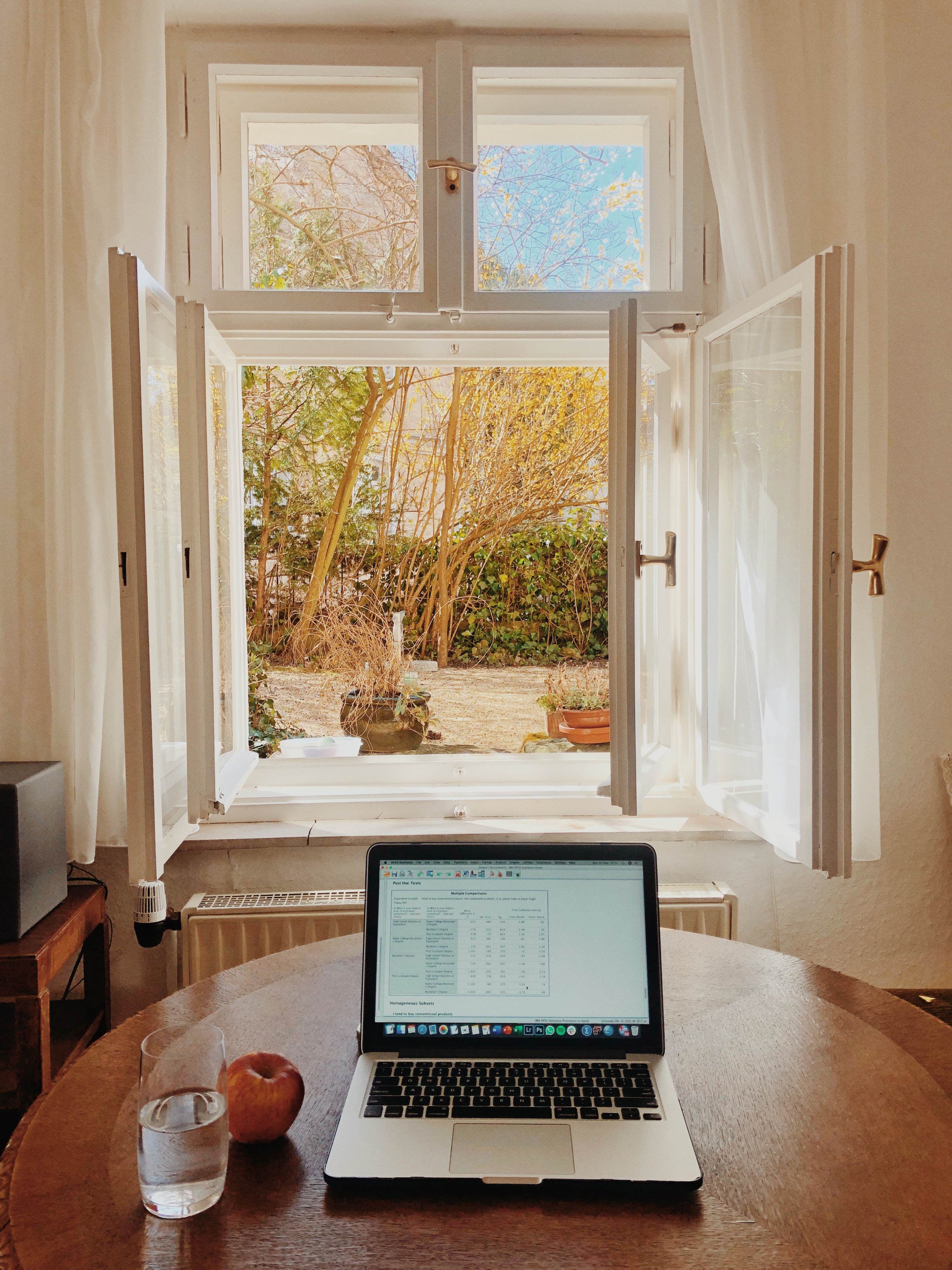Yokogawa Marex is a software solutions company based in Cowes, with thousands of installations of their flagship product Exaquantum (a Plant Information Management System) active in process plants all over the world. Since March of this year, like many office-based businesses across the Island, staff have been working from home, adjusting to a new working environment, whether that is setting up workstations in back rooms, kitchen tables or kids bedrooms. The sudden changes caused by lockdown meant staff had to adapt quickly to the ‘new normal’, which has changed the way they are working and provided some additional flexibility for their staff.
How staff have adapted
Communication was a vital part of our organisation before COVID-19, and it’s as important as ever now, with staff staying ‘connected’ whilst working from home. Technologies such as Microsoft Teams and Skype has expanded how they communicate as an organisation, with remote meetings, video conferencing, and online discussions, making it easy to discuss and share ideas as if you are in the same room. To keep staff regularly updated, weekly coffee mornings help to keep staff up to date with the latest information, share thoughts and have fun with some jokes and quizzes. This greatly improves morale within the team, as one member added, “Our coffee mornings are a great way for senior management to keep us up to date but it’s also a great opportunity to catch up with one another as we normally would in the office.”

Greater flexibility to meet customer needs
One of the major benefits of working from home is the flexibility it offers staff, both personally and professionally. The working is day is not so rigid, working hours can modified and adapted to the needs of the individual. Staff are no longer required to commute to Cowes from all over the Island and also from the South Coast, freeing up precious time in the mornings and evenings that can be spent with family and friends. This is reducing stress levels associated with commuting, and also having a positive impact on the environment locally, especially considering the works to improve the Islands infrastructure at St Mary’s and the ongoing issues with the floating bridge.
Staff are also able to adapt their working hours to better suit their customers’ needs if necessary or work on special assignments. For example, some staff members have been adjusting their schedules accordingly to suit different time zones and maintain great customer service worldwide. This all contributes to a better work life balance for their staff as they’re able to manage their time to suit their work.
By being able to work effectively at home, the team are continuing to deliver the same high-level service as before the pandemic, ensuring projects are completed and business growth is sustained, despite the many restrictions due to COVID-19. Yokogawa Marex have even commissioned a significant project at a customer facility in the Middle East remotely. This would normally have involved engineers spending weeks on-site, which is has now been achieved by their engineers from their homes, an idea that was unthinkable before the pandemic.
Wayne Matthews, Divisional Director said, “The team have adapted brilliantly to working remotely, dedicated to working around the clock to support our customers all over the world. We look forward to securing more opportunities in the near future as we continue to grow and expand as a business.”
.jpg)
How Yokogawa Marex has adapted as a company
Process plants are traditionally locked-down with no remote access, but the pandemic has presented a business opportunity to open up connections to plants (with cyber security protection in place), to ensure that customers systems are fully operational.
However, for some customers, remote support is not always possible and with travel restrictions in place, the team work closely with Yokogawa colleagues based at the customer location. They are able to physically arrive on site, address issues and provide operational assistance that cannot be done remotely, supported from the Island.
This means that staff no longer need to spend hours flying around the world, of which could be days of travel time, depending on location. Staff are therefore able to support customers from the comfort of their own home and customers benefit from reduced costs and less impact on the environment.
COVID-19 and its Challenges
 Over the past months, perhaps one of the biggest challenges is in the area of recruitment, bringing new staff on-board was disrupted in March, at a time when Yokogawa Marex were looking to boost staffing levels. With the lockdown restrictions and social distancing measures, the usual recruitment routes were unavailable. Despite this, two new staff have been recruited, both in the Software Development Team, of which one is a graduate straight out of university. This has given them scope in order to continue to expand as a company, taking on new talent and driving innovation forward through this difficult time.
Over the past months, perhaps one of the biggest challenges is in the area of recruitment, bringing new staff on-board was disrupted in March, at a time when Yokogawa Marex were looking to boost staffing levels. With the lockdown restrictions and social distancing measures, the usual recruitment routes were unavailable. Despite this, two new staff have been recruited, both in the Software Development Team, of which one is a graduate straight out of university. This has given them scope in order to continue to expand as a company, taking on new talent and driving innovation forward through this difficult time.
It’s not just recruitment that has been impacted, we have also not been able to offer any work experience or student interns for work experience which would normally take place through the summer months. Students are missing out on finding out how a busy software development company works and operates, which is valuable experience which can support their academic studies.
Despite the rapid change in work environment, Yokogawa Marex as an organisation and the team have adapted to the new ways of working, continuing to operate effectively remotely and maintain goals but most importantly, supporting their customers worldwide. They have been able to continue to grow as a company, innovating new ways to overcome challenges of the current climate to benefit their way or working, no matter how long restrictions are to remain in place.